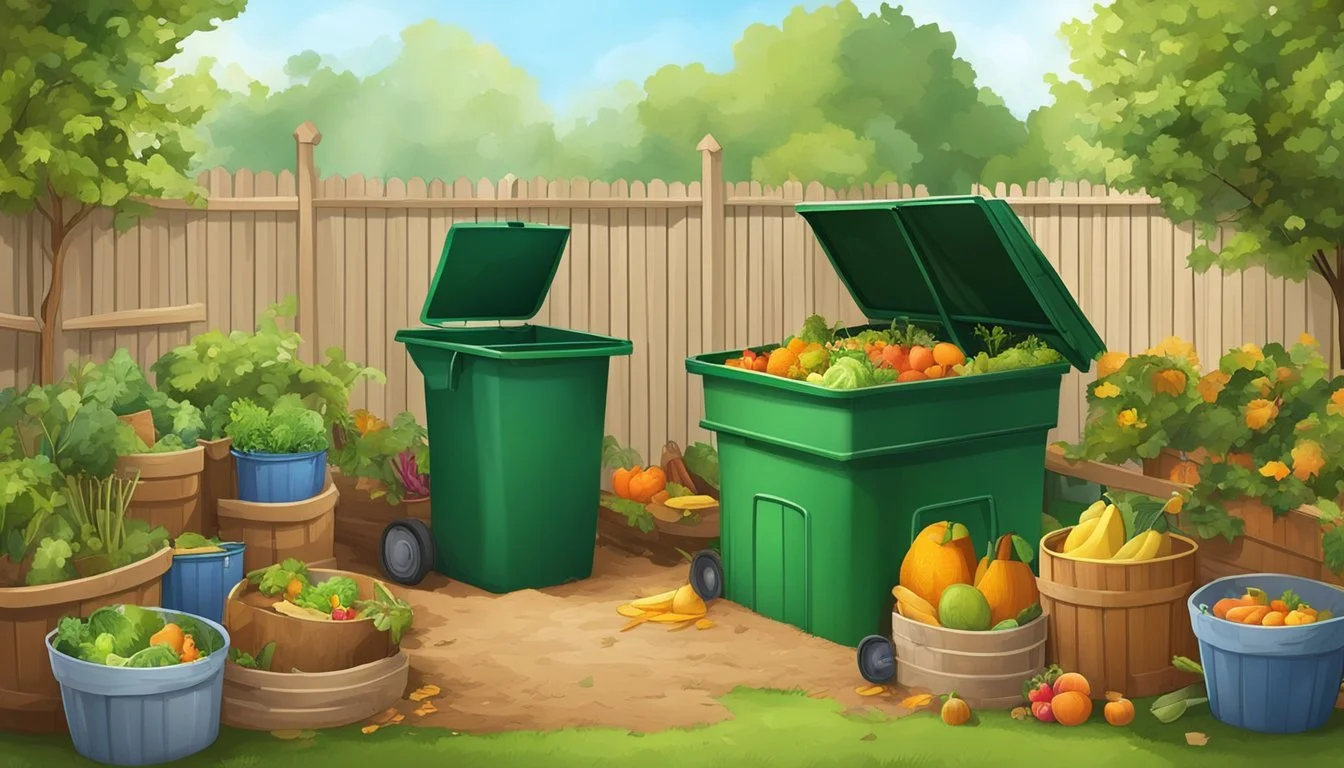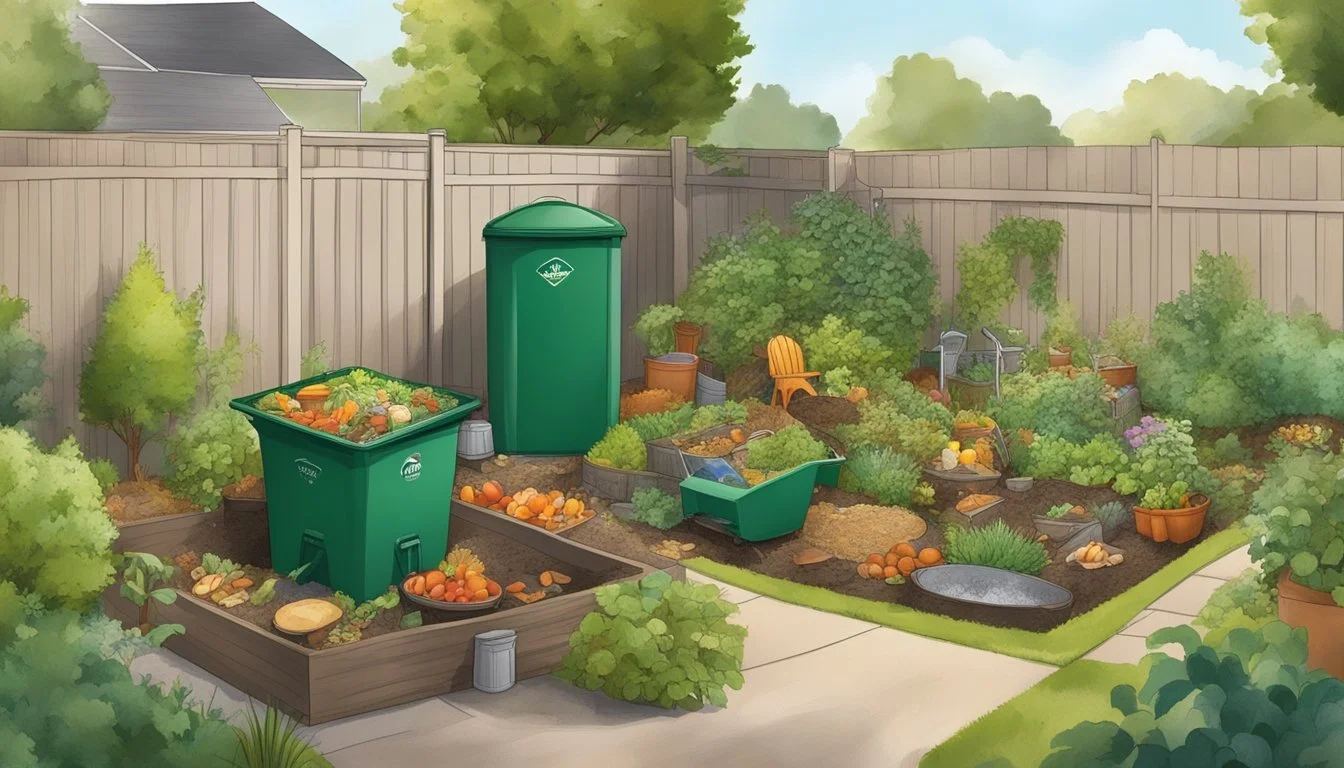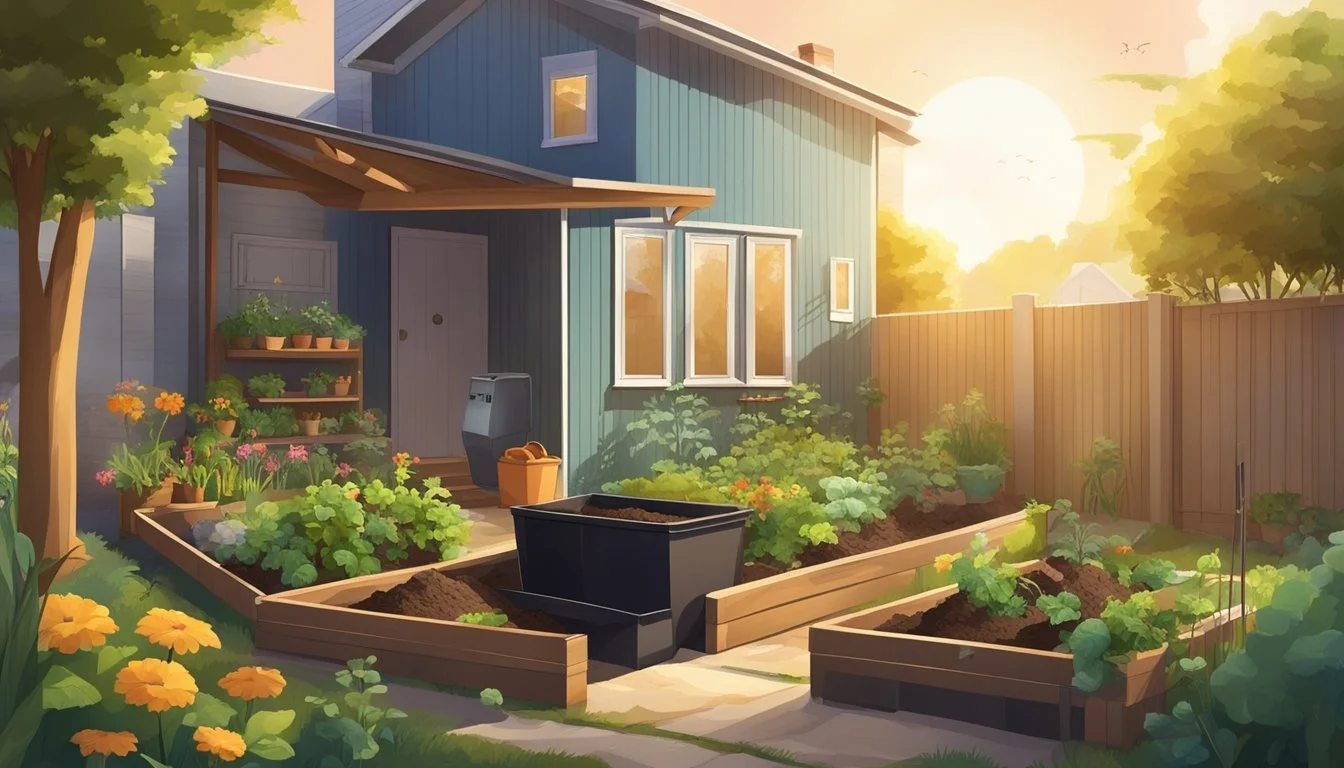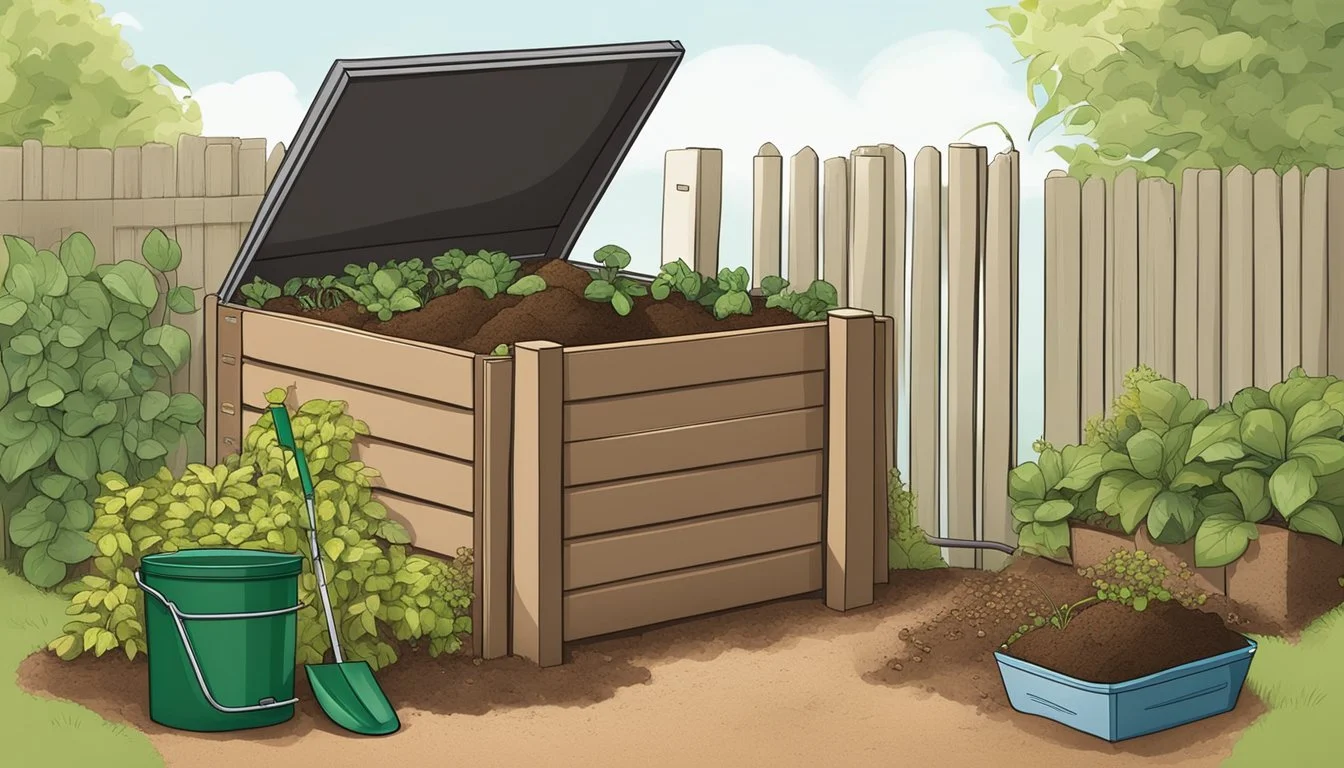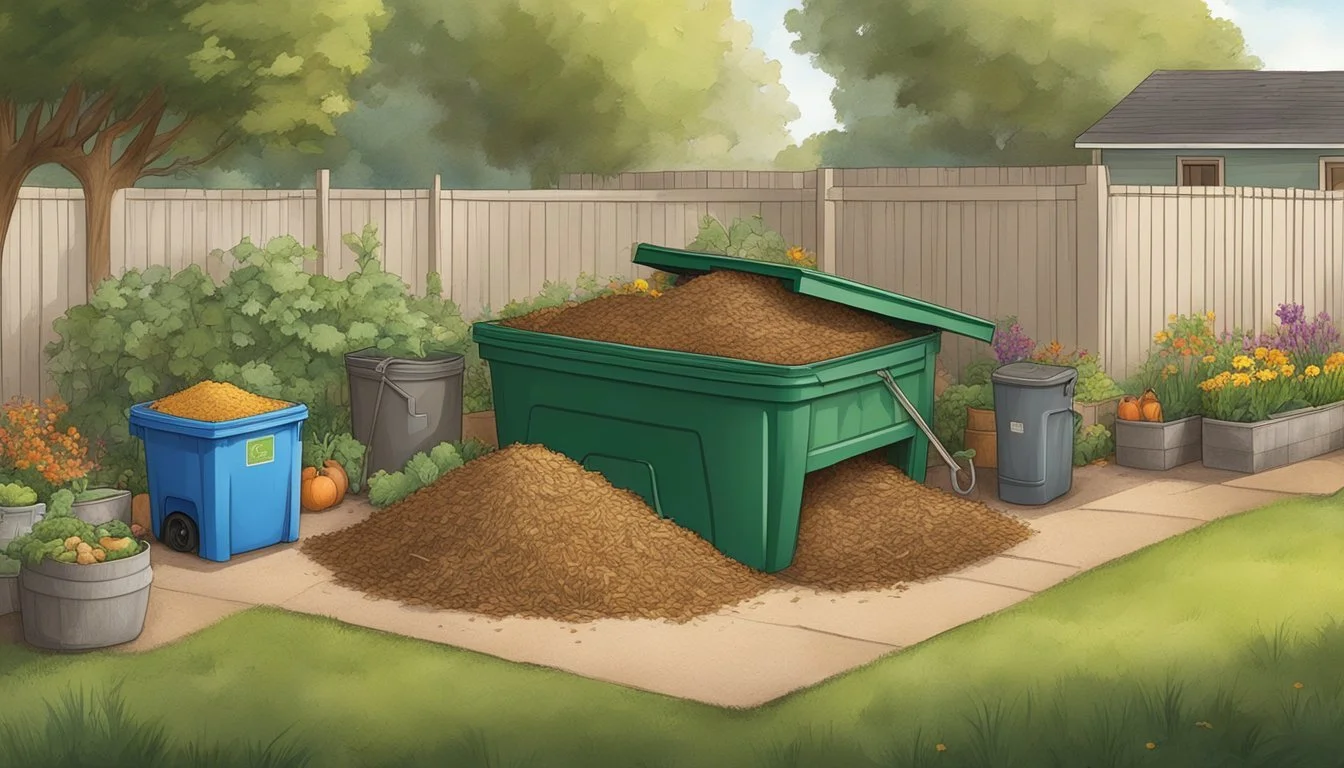Guide to Composting in Vacaville, CA
Optimize Your Waste Reduction Efforts
Composting is an essential practice for sustainability and waste management, particularly within environmentally conscious communities like Vacaville, CA. This guide provides residents with the necessary information to engage in effective composting practices, aiming to reduce landfill waste and improve soil health. By turning organic waste into nutrient-rich compost, Vacaville residents contribute positively to the environment and embrace a greener lifestyle.
Vacaville has various facilities and services designed to support local composting efforts. One such facility is Jepson Prairie Organics, which plays a key role in the region's commercial composting. Additionally, the city's waste management policies, including the Residential Organics Service, facilitate the collection and composting of residential organic waste. These services enable community members to easily dispose of their compostables, knowing they will be processed responsibly.
The implementation of statewide mandates, such as California Senate Bill 1383, emphasizes the importance of recycling organic waste both for businesses and multi-family dwellings. This initiative further showcases the efforts in Vacaville to adhere to environmental regulations and encourage widespread participation in composting activities. Through this guide, residents can find not only the rationale behind composting but also practical steps to integrate this eco-friendly habit into their daily lives.
Why Compost in Vacaville?
Vacaville, California, has embraced composting as part of its commitment to environmental stewardship and waste reduction. The city encourages residents to convert organic waste into valuable resources, mitigating the impact on landfills and supporting soil health.
Environmental Benefits
In Vacaville, composting organic waste significantly contributes to climate change mitigation. It reduces greenhouse gas emissions by diverting organic materials from landfills, where they would decompose anaerobically and generate methane, a potent greenhouse gas. The compost produced is a renewable resource, enriching soil and helping to sequester carbon, ultimately benefiting the local ecosystem.
Reduces methane emissions from landfills
Enhances soil health and carbon sequestration
Reduction in Waste
Composting in Vacaville actively reduces the amount of waste that requires disposal. It aligns with CalRecycle goals and the statewide efforts to reduce organic waste in landfills by 75% by 2025. This strategy not only extends the life of landfills but also transforms waste into a resource for creating renewable energy and nutrient-rich soil amendments that support sustainable agriculture in the region.
Aligns with California's waste reduction goals
Transforms organic waste into a sustainable resource
Basics of Composting
In Vacaville, CA, and beyond, understanding the essentials of composting empowers individuals and communities to convert waste into valuable organic material, enriching their gardens while reducing landfill burden.
What Is Composting?
Composting is the process by which organic materials decompose into a rich soil amendment, commonly known as compost. It involves the systematic breakdown of food scraps, yard trimmings, and other biodegradable materials into a nutrient-dense medium that enhances soil health.
Composting Process Overview
The composting process is a natural form of recycling that benefits from the right balance of carbon (browns like wood chips, leaves, hay, cardboard) and nitrogen (greens like fruit and vegetable scraps, grass clippings, tree trimmings). Adequate ventilation and moisture are vital components facilitating the decomposition performed by microorganisms.
Compostable Materials
A diverse range of materials can be composted, but they should always be free of contaminants. Ideal inputs for compost bins include:
Food waste: Fruit and vegetable scraps, coffee grounds, tea bags.
Yard waste: Grass clippings, leaves, plant trimmings.
Fiber waste: Untreated wood chips, straw, non-glossy cardboard, paper.
Materials such as meat, dairy, and oils should be avoided as they can attract pests and create odor issues. Successful composting requires careful monitoring and periodic turning of the compost pile to ensure a healthy decomposition process. In Vacaville, local initiatives such as the Jepson Prairie Organics support the community's composting efforts by transforming locally collected organic waste into high-quality compost for agricultural and landscaping use.
Setting Up Your Composting Space
When embarking on a composting project, it's essential to pick the right composting bin and identify a strategic location for setup. Proper bin selection and location are critical to the success of composting efforts.
Choosing a Composting Bin
The first step in backyard composting is to select a suitable composting bin. The right bin optimizes decomposition and makes maintenance easier. Residents have a variety of bins to choose from, including ready-made plastic bins or homemade enclosures like those made with wire or wooden pallets. Commercial composting bins usually feature easy-to-use designs with access hatches and ventilation systems tailored to Vacaville's climate.
Location and Setup
Finding the right spot in the garden or yard is crucial. The area should be accessible, yet out of direct sunlight to prevent the compost from drying out. It should be level with good drainage to avoid waterlogging. A balance between sun and shade ensures the compost remains at an ideal temperature, promoting efficient decomposition. Once the bin is in place, layering organic waste such as kitchen scraps and yard waste will start the composting process.
Composting Guidelines
Composting in Vacaville is a straightforward but important process to manage organic waste effectively. The program aims to reduce landfill use and produce nutrient-rich soil amendments.
What to Compost
Residents can compost various organic materials, which include:
Food scraps: Fruits, vegetables, coffee grounds, and eggshells.
Yard waste: Grass clippings, leaves, and plant trimmings.
It's essential for the compost mix to have a balance of carbon (browns like leaves, paper, and cardboard) and nitrogen (greens like food scraps and grass clippings).
Items to Avoid
To maintain a healthy compost system, certain materials must be excluded:
Meat and bones: Attracts pests and can cause odors.
Fats and oils: Slow to decompose and can attract animals.
Treated or painted wood: Contains chemicals harmful to the composting process and eventual soil.
It's also crucial not to include trash or plastics, as these contaminants do not break down and can disrupt the composting process.
Managing Your Compost
Effective compost management optimizes conditions for organic waste to transform into nutrient-rich soil, balancing factors like air, water, and temperature. Consistency in care mitigates common issues such as odors and pests.
Maintaining the Right Conditions
Air: Regular turning adds oxygen, essential for composting. Within the recommended size of your pile, turning should be frequent enough to distribute air but not so often to cool the pile and slow decomposition.
Water: The compost should be moist but not wet, akin to a wrung-out sponge, to enable microbial activity without leaching nutrients.
Temperature: A proper balance of green and brown materials, combined with correct moisture and aeration, will generate the necessary energy as heat, indicating active decomposition.
Controlling Odors and Pests
Odors: If compost emits a strong smell, it often indicates an excess of water or insufficient aeration. Adjust by turning more frequently and adding brown materials to absorb excess moisture.
Pests: To discourage pests such as rodents and insects, maintain a balanced compost mixture, cover fresh organic waste with a layer of soil or finished compost, and ensure the pile is properly sized to maintain a high core temperature that is uninviting to pests.
Compost Maturity and Use
Finished compost should look and smell like rich, dark soil. This indicates that it has matured into a stable soil amendment and is ready to use.
Test: An uncomplicated method to check the maturity is to bag a small amount of compost and seal it for a few days. If it smells earthy when reopened, it's ready; if not, it needs more time.
Through diligent monitoring and adjustment, compost at home can successfully convert organic waste into energy for gardens, providing a homemade solution for nutrient-rich soil without the negative side effects of synthetic fertilizers.
Troubleshooting Common Issues
When composting in Vacaville, CA, one may encounter several common issues that can hinder the composting process. Being aware of the symptoms and knowing how to address them will keep the composting operation running smoothly.
Odor Problems: If a compost pile emits a strong smell, it often signals an imbalance of the carbon-to-nitrogen ratio or lack of sufficient airflow. Adding more brown materials such as dead leaves or straw can help increase the carbon content, while turning the pile regularly ensures adequate oxygen supply.
Moisture Imbalance: Compost should feel like a wrung-out sponge. Too much moisture can create odors and slow decomposition, whereas too little can stop the process altogether. A moisture issue can be corrected by either adding dry materials like shredded paper or by watering the pile if it's too dry.
Pest Attraction: Meat, dairy, and cooked food can attract pests to a compost pile. Ensure these items are excluded from the compost to prevent pest problems.
Common Issue Signs Possible Solutions Odor Bad smell from the pile. Adjust C/N ratio, turn the pile. Moisture Too wet or dry to the touch. Add dry materials or water appropriately. Pest Infestation Presence of rodents or insects. Avoid composting animal products.
When dealing with issues related to screening the finished compost, ensuring that the compost is fully decomposed before sifting can lead to a more usable end-product. If materials are not breaking down, re-evaluating the moisture, C/N ratio, and pile aeration is necessary.
Efficient troubleshooting enhances compost quality and the environmental benefits it provides. Residents in Vacaville, CA, can enjoy sustainable waste management practices with proper maintenance and issue resolution.
Community and Resources
Vacaville, California, benefits from a dedicated community and a range of resources that support composting and recycling practices. Residents are encouraged to utilize local workshops for education and rely on established services for waste collection and composting.
Local Workshops and Support
Vacaville offers a variety of workshops aimed at educating individuals and communities about composting and organic waste management. These workshops play a crucial role in spreading knowledge and skills related to sustainable practices. One can find further details or register for an event through emails and online forms provided by local organizations and initiatives.
Recycling and Waste Collection Services
For waste collection, Recology Vacaville Solano provides an essential service to the community by processing organic waste at facilities like Jepson Prairie Organics. They ensure that organic material is not wasted but instead turned into compost for agricultural and landscaping use. Furthermore, Vacaville Recycling maintains a comprehensive residential organics service, ensuring that organic waste is properly separated and collected within the city limits, contributing to California's larger waste reduction goals.
Residents can reach out to these services through various channels, including contact forms and emails, to seek assistance or inquire about specific recycling programs and waste collection schedules.
Advanced Composting Techniques
Exploring advanced composting techniques allows for efficient breakdown of organic materials, enhancing soil health through the activity of microorganisms. These methods can accelerate the composting process and enrich the resulting compost with vital nutrients like nitrogen, necessary for plant growth.
Vermicomposting
Vermicomposting utilizes the natural digestion abilities of worms, typically red wigglers, to decompose organic waste. The worms consume materials such as tea bags, shredded paper, and dry leaves. Through their digestion process, these materials are broken down by microorganisms in the worms' guts, turning them into nutrient-rich castings. Optimally, a balance of green materials, high in nitrogen, such as grass clippings, and brown materials like untreated wood chips and twigs, should be maintained to ensure a healthy and productive vermicomposting system.
Bokashi Fermentation
Bokashi fermentation is an anaerobic process that uses a specific blend of microorganisms to ferment organic matter, including items that often aren't recommended for traditional composting methods. This bokashi bran is layered with food waste in a sealed container. Effective at processing meats and dairy, which are typically avoided in conventional composting, Bokashi fermentation results in a preliminary product that needs further breakdown after being buried in soil or added to a traditional compost pile to complete the decomposition process. Bacteria in this mix work quickly to break down the waste, minimizing smell and deterring pests.
Incorporating Compost into Gardening
In Vacaville, CA, gardeners have embraced composting as a key step to enrich their gardens. Composting converts organic waste into a nutrient-rich amendment, significantly enhancing soil fertility and garden health. To effectively integrate compost into gardening practices, one should follow a few simple methods.
First, gardeners should identify compost as a soil amendment or as mulch. For soil improvement, a layer of compost approximately 2 to 3 inches thick should be evenly applied over the garden bed. This can be mixed into the top 6 to 8 inches of soil using a tiller, shovel, or garden fork. The integration of compost bolsters the soil structure and increases water retention, creating an ideal environment for plants to thrive.
Alternatively, compost can serve as mulch, which is spread on the soil surface to maintain moisture and reduce weeds. A layer of 3 to 4 inches of compost applied as mulch will break down gradually, providing continuous nutritional benefits.
When Incorporating Compost Method As a soil amendment Mix into the topsoil As mulch Apply on the soil surface
Gardeners in Vacaville can obtain compost from local facilities like Jepson Prairie Organics, which ensures a reliable supply of high-quality compost for landscaping and gardening.
For best results, compost should be added to the garden once a year, ideally before planting season. This allows the compost time to integrate with the soil and begin its work of slowly feeding the garden ecosystem. With consistent application, composting remains a cornerstone of sustainable gardening in Vacaville, enhancing both soil health and plant vitality.

